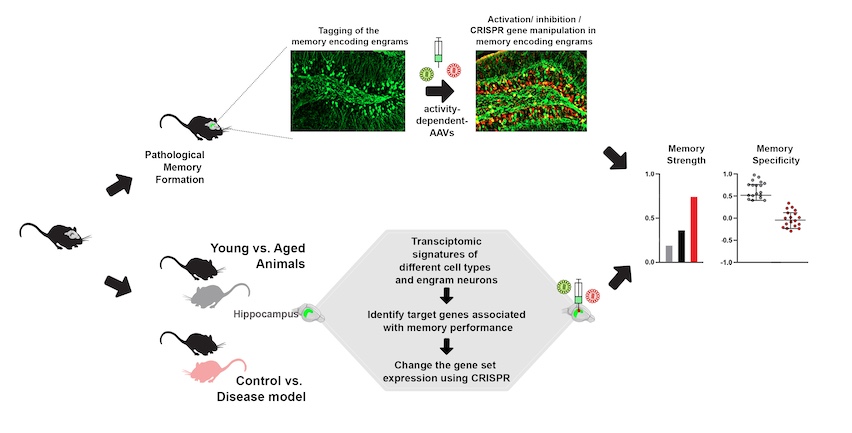Engram Technology
When we form a memory, a specific population of neurons in the brain becomes activated to encode the event, collectively known as a "memory engram." The reactivation of this small cell population is sufficient to recall the event, while partial activation occurs when encountering similar contexts, allowing to remember the experience.
However, factors like early life stress or traumatic events can disrupt this engram reactivation process, leading to the formation of pathological memory formation that underlie conditions such as PTSD. Our research focuses on identifying the genetic signatures of these pathological memories and exploring whether we can enhance individual resilience by precisely editing these genes in the brain.
Besides, aging-induced cognitive decline and neurodegenerative diseases such as Alzheimer’s affect memory performance, also in mouse models, via dysregulation of engram formation and reactivation processes. We will also investigate our identified genetic risk factors from transcriptomics in these models and implement gene silencing/circuit manipulation there to improve the memory performance.


